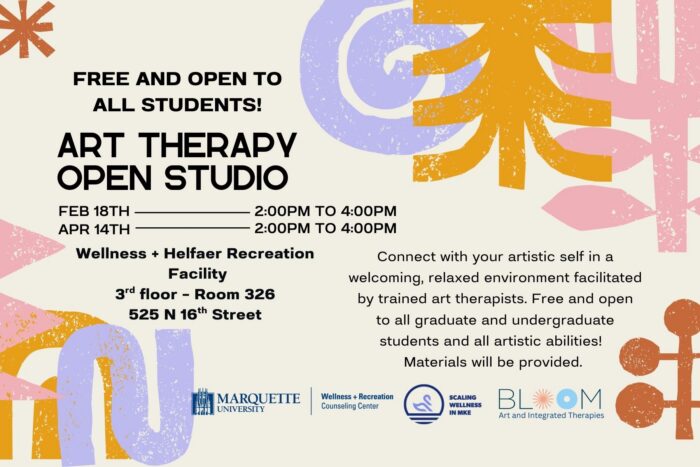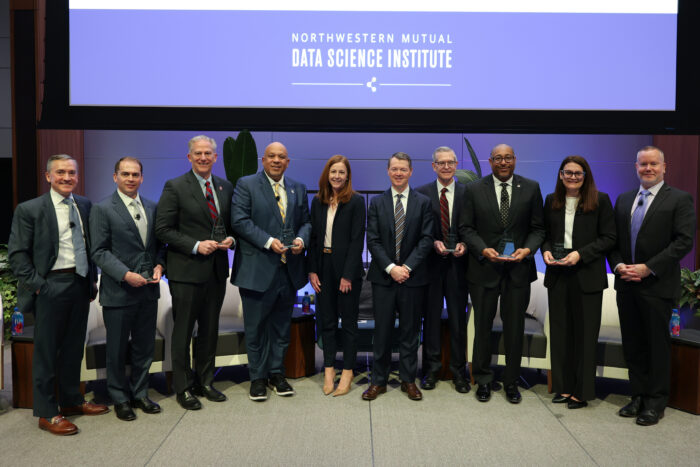After two semesters of collaboration in its engineering capstone course, the MARS (Marquette Aerospace and Robotic Systems) senior design team placed fifth out of 49 collegiate teams in NASA’s LUNABOTICS Robotic Mining Competition. This annual competition challenges student teams to design, build and demonstrate a lunar mining robot capable of extracting icy regolith material from the moon’s surface.
In addition to high scores for their work and presentations, the team also received the Innovation Award from NASA, which recognized the team’s exceptional ability to innovate and push the boundaries in this highly competitive project. NASA credited the Marquette team for integrating a diverse array of technologies that could prove useful in a challenging lunar environment.

This nationwide competition is one of several student challenges connected to NASA’s Artemis missions, which aim to return to the moon to further study the surface, establish a long-term presence on the moon and explore the possibility for travel to Mars. These competitions are designed to inspire future STEM leaders and introduce engineers to challenges on the horizon for NASA and its partners. This year’s competition ended in May with final results shared in June.
This is the fifth year Marquette competed in the competition, providing an advantage for each new engineering team to learn from previous designs and persistent issues. The 2022-23 team consisted of eight senior-level engineering students – four mechanical engineers, two electrical engineers and two computer engineers – collaborating across disciplines during the senior design capstone experience.
Dr. Philip Voglewede, associate professor of mechanical engineering, returned as faculty advisor for the project, challenging the team to explore new design opportunities not yet introduced to the Marquette robot. The team was also supported by Stephen Cash, Eng ’93, who served as an industry mentor and offered expertise as a systems engineer, and Jill Stinehart, Eng ’21, ’23, a graduate student who served as a reviewer and participated in the 2021-22 competition.
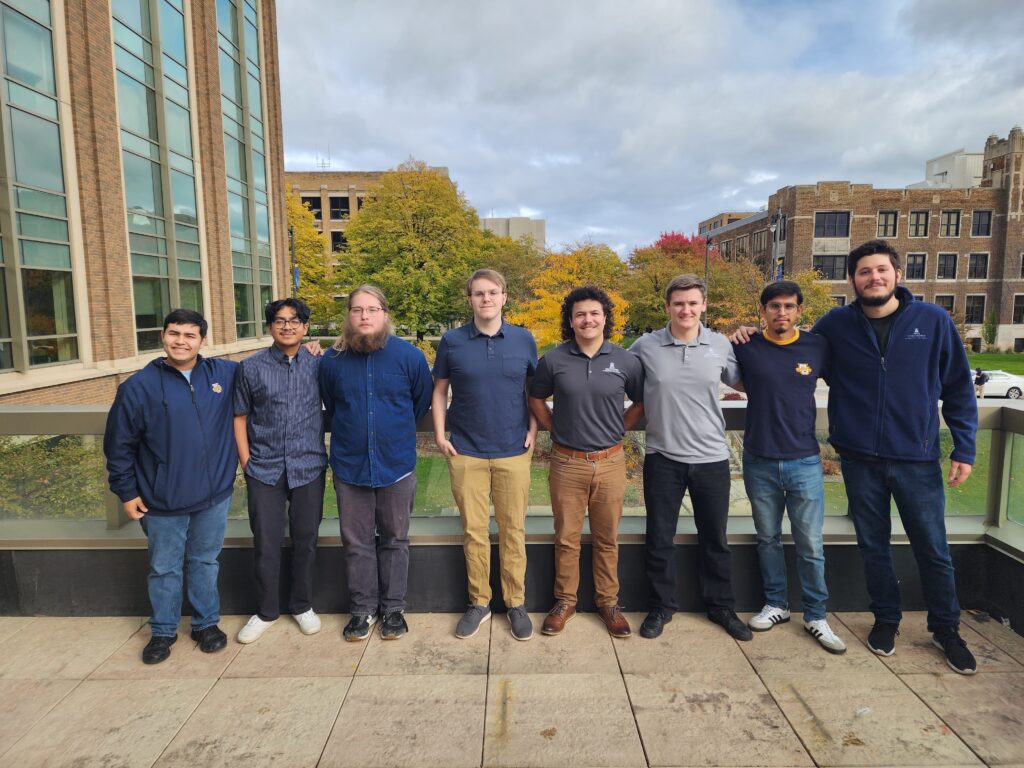
Motivated to build on the success of last year’s design, which earned a 3rd place finish for Marquette, the 2022-23 team added ambitious new features to the robot, successfully implementing multiple autonomous functions. These developments allowed the Marquette robot to use sensors to mine regolith, navigate simulated lunar surfaces and even detect and avoid obstacles without human input. The array of new features helped the design stand out and earn the recognition for innovation.
“The Lunabotics project was an incredible capstone opportunity because it gave our team experience in every facet of an engineering project,” said Daniel Whalen, Eng ’23. “Not only did each of us have the opportunity to tackle challenges unique to our individual engineering specialties, we needed to organize ourselves and collaborate closely to ensure that all of the smaller components and systems could be integrated into the whole robot.”
NASA did not host an in-person competition this year, but the team was able to test their robot’s technical abilities in several simulated environments on Marquette’s campus and even at some of Milwaukee’s beaches. Watch the team’s proof of life video to see the Marquette robot in action.
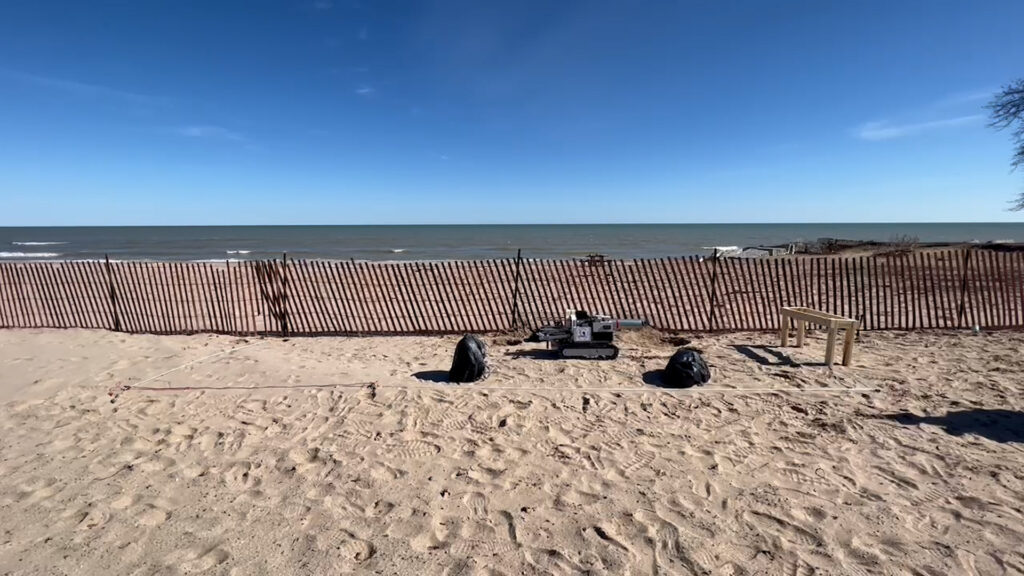
“Through this competition, the students leveraged their Jesuit engineering education to work together for the greater good of the team and project,” Voglewede said. “They persevered through the ups and downs of any difficult project and created the most advanced MARS robot yet.”
In addition to technical scoring, each collegiate team was challenged to lead outreach efforts to promote interest in STEM to K-12 audiences. The Marquette engineers excelled in community engagement and sharing their enthusiasm for engineering. The team hosted weekly hands-on robotics sessions at MacDowell Montessori, met regularly with students on UCC Acosta Middle School’s FIRST Robotics Lego League team and provided tours through Marquette’s Engineering Hall. Plus, the team even helped a troop of local Boy Scouts earn their own robotics merit badges.
The project culminated with a presentation to engineers at NASA, Boeing and additional industry partners, and then a supplemental presentation at Marquette’s Design Day.
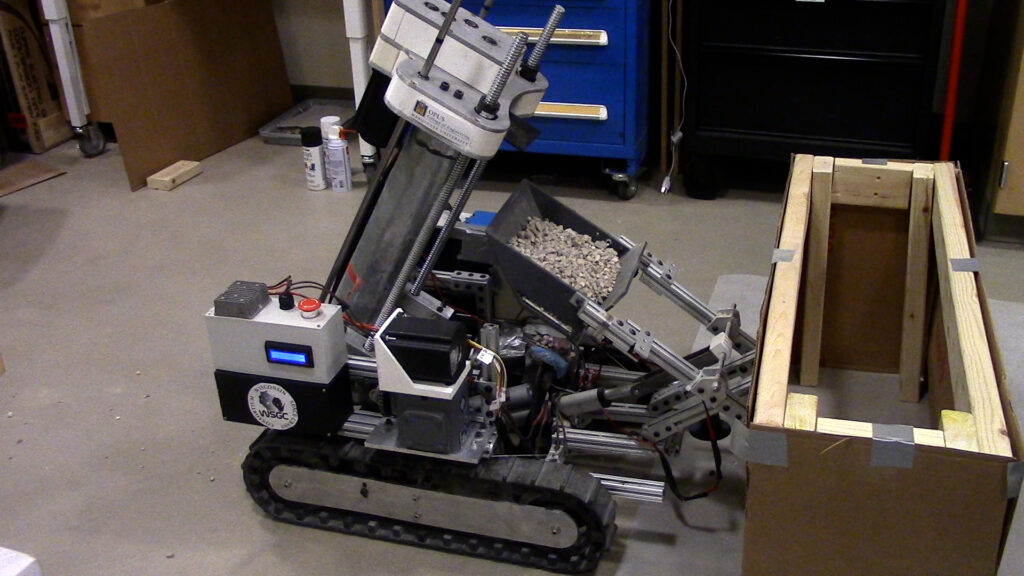
“This project helped me to build many of the soft skills that are necessary in my career but are hard to convey in a classroom environment,” Whalen said. “Skills like managing timelines or compromising between different goals take experience to handle tactfully, and I have already used the experience in my career.”
The MARS team’s success is made possible by generous sponsors, including the Wisconsin Space Grant Consortium and Komatsu Mining Corp.
